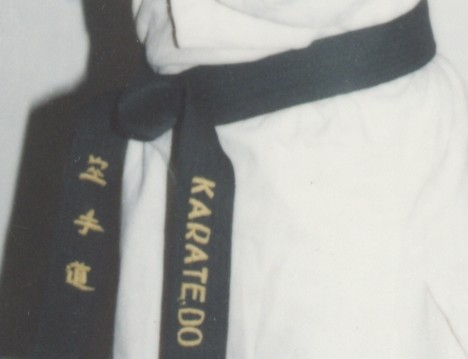Bản đồ các loại bia phổ biến nhất ở tất cả các quốc gia. Một tấm bản đồ khác – có khi là rất hữu ích cho nhiều người đi du lịch!
Linh tinh – Hot Pot
There are 86 posts filed in Linh tinh – Hot Pot (this is page 4 of 9).
Xếp hình :)
Xếp hình được định nghĩa theo nhiều cách khác nhau: từ chính thống đến phi chính thống hay cả hai 🙂 Tùy theo ngữ cảnh và sở thích mà sử dụng.

Trò chơi Tạo Hóa
Có thể nào thế giới chúng ta đang sống thực ra chỉ là một chương trình mô phỏng máy tính do thế lực siêu nhiên nào đó, ở mức độ phát triển rất cao, tạo ra để thử nghiệm cho vui thôi? Thảo luận nghiêm túc, đăng trên tạp chí nghiêm túc chứ không phải chuyện phiếm!
Câu hỏi về nguồn gốc và ý nghĩa của sự tồn tại của loài người, của thế giới chúng ta đang sống được bàn luận hàng ngàn năm nay rồi. Chúng ta vẫn đang tiếp tục đi tìm câu trả lời. Dù sao đi nữa, chúng ta vẫn là những sự sống đơn côi giữa sự vô cùng của vũ trụ.
Lễ hội nhậu
Tháng Mười các bạn Đức có lễ hội Oktoberfest nổi tiếng. Món này giờ cũng đã được nhập khẩu vào Việt Nam rồi >>
Xem cái clip dưới đây thì có khi còn hơn chợ phiên vùng cao ở mình 🙂 Hy vọng sẽ có dịp nào đó sang Đức đúng mùa Oktoberfest để được tắm bia thỏa thích!
Đứt tơ hồng
Bày vẽ quá cơ 🙂
Kinh nghiệm của dân IT
Một cậu bé hỏi bố mình: “Bố ơi! Con được sinh ra thế nào hả bố?”. Người cha là một kỹ sư công nghệ thông tin đang lướt web bèn ứng khẩu trả lời cậu quý tử.
Người cha giải thích: “Mẹ và bố cùng duyệt web trên một chiếc giường. Cha kết nối với mẹ. Cha upload một số dữ liệu từ một cái USB sang cho mẹ. Sau khi download hết về, mẹ sửng sốt thông báo là mẹ không cài một chương trình anti-virus nào cả, trong khi đó, bố cũng không cài đặt Fire Wall”.
“Rồi thế nào nữa hả bố”, cậu bé sốt sắng.
Người cha bình tĩnh tiếp tục câu chuyện: “Cả cha và mẹ đều cố gắng xoá bỏ số dữ liệu trên, thậm chí là format lại ổ nhưng không kịp. Vậy là sau 9 tháng 10 ngày, con được sinh ra đời”.
(Sưu tầm trên mạng)
Khi có bạn gái là người Ý
Gia đình sẽ giúp bạn rất nhiệt tình, mọi nơi mọi lúc 🙂
Bổ túc tiếng Nghệ
Hôm nay có mấy tay người Bắc vào quán thịt Trâu tươi xứ Nghệ. Khi nghe chủ quán là một cô gái xinh đẹp hỏi:
– Các bác ăn món Tru chi ạ
Khách hỏi Tru là món gì, chủ quán giải thích:
– Trong tiếng Nghệ thì vần âu đọc thành u, ví dụ Trầu = Trù, Trâu=tru…
Khách à lên một tiếng và nói:
– Vậy cho tôi thêm một món Đậu.
Chủ quán cười:
– Món Đậu quán ni nỏ bán, chỉ khuyến mại thôi ạ
(st)
Dư âm ngày Cá
Ngày Cá năm nào cũng có những trò vui từ bạn Google. Ví dụ như trò năm nay (trong rất nhiều trò khác của các bạn ấy).
Gửi cô hàng xóm
Ngày xua như sắt như đồng
Như đinh đóng cột, như rồng phun mưa
Bây giờ như cải muối dưa
Ba thang Minh Mạng vẫn chưa ngóc đầu
Trải qua một cuộc bể dâu
Tháng ngày oanh liệt còn đâu nữa mà
Ngày xưa sung ống sáng lòa
Bây giờ dưa chuột héo và mốc meo
Ngày xưa sung sức thì nghèo
Bây giờ rủng rỉnh tóp teo mất rồi
Ngày xưa lớn khỏe hơn chồi
Bây giờ nó có đàn hồi nữa đâu
Ngày xưa hùng hục như trâu
Bây giờ èo uột như tầu lá khoai
Ngày xua khám phá miệt mài
Bây giờ nửa cuộc – mệt nhoài đứt hơi
Ngày xưa chiến tích để đời
Bây giờ chiến bại nhớ thời… ngày xưa
Ngày xưa… bất kể sớm trưa
Bây giờ thỉnh thoảng lưa thưa… gọi là
Ngày xưa đầu tóc mượt mà
Bây giờ nhẵn thín như là dưới mông
Bây giờ sống cũng bằng không
Bây giờ hết kiếp làm chồng người ta
Bây giờ ôm hận đếngià!
Cho dù béo tốt cũng là cơm toi
Bây giờ pháo đã tịt ngòi
Gia tài còn lại một vòi nước trong
Ngày xưa vợ đợi , bồ mong
Bây giờ vợ nguýt, bồ cong cớn lườm
Ngày xưa mặt mũi tinh tươm
Bây giờ nhầu nhĩ – ớt tương trộn mì
Ngày xưa lên ngựa là phi
Bây giờ bước một ngựa đi…tà tà
Ấy là nói chuyện ở nhà
Chứ sang hàng xóm, vẫn là ngày xưa
Sưu tầm trên mạng

